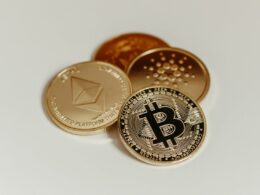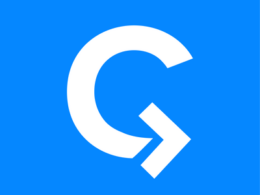Unity Software Inc., the game-engine and app-monetization company, experienced a significant drop in its shares on Monday following the announcement of controversial fees last week. These fees caused uproar within the online gaming community and led to rebellion from numerous game developers.
Shares of Unity, trading under the symbol U (-6.82%), plummeted by almost 11% on Monday, reaching an intraday low of $32.46. Nevertheless, the shares are still up by 17% for the year.
Unity generated a buzz in the gaming world when it unveiled new fees for more established game developers. These fees would be imposed on every download of a game built on Unity’s engine. However, the company updated its blog post on Sunday evening, acknowledging the backlash and stating their willingness to make changes.
Unity stated, “We apologize for the confusion and angst caused by the runtime fee policy we announced on Tuesday. We are actively listening to our community, team members, customers, and partners and will be making adjustments to the policy. We will provide an update in a couple of days. Thank you for your sincere and constructive feedback.”
In addition to the widespread unpopularity of these fees, analysts last week highlighted their potential to enhance monetization within the gaming industry.
Although Unity seems to be reconsidering the fees now, analysts believe that the company may have already incurred some brand damage.
Wedbush analyst Michael Pachter referenced a blog post by Adam Foroughi, CEO of competing firm AppLovin Corp. Foroughi expressed his concerns, remarking, “John, There was a time when I would’ve texted you this, but the actions you’ve taken seem too targeted at us for me to do that, so I’m voicing them here.” He further added, “Our jobs are to help this community expand while also running our businesses. The decision you made doesn’t help the community, and the backlash you’ve seen is reflective of that.”
Pachter concluded that, due to this blog post, developers may now view AppLovin as supportive of their interests while considering Unity as an adversary.
Unity Faces Challenges as Developers Threaten to Turn Off Ad Services
It seems that Unity Technologies, a leading platform for creating and operating interactive, real-time 3D content, is facing some headwinds. According to industry experts, a number of developers have followed through on their threat to disable Unity’s ad services, which could potentially benefit rival AppLovin and other competitors. As a result of these developments, shares in AppLovin rose by as much as 3% on Monday.
While Unity is unlikely to completely eliminate its new fees, Michael Pachter, an analyst at Wedbush Securities, suggests that the company may consider reducing the 20-cent-per-download fee to a more reasonable 5 cents. In addition, Pachter believes that Unity will increase the threshold at which these fees are triggered. Pachter also anticipates that Unity will offer heavy discounts on Runtime Fees for its ad tech customers in an effort to encourage their usage.
However, this recent episode appears to be just one in a series of events that have impacted Unity’s relationship with its developer community. According to Jefferies analyst Andrew Uerkwitz, over the past year, Unity has experienced a decline in trust from customers due to various actions and a lack of communication. Uerkwitz expresses concern about the company’s decision to tie additional fees to downloads, citing the challenges of effectively tracking downloads and questioning the reasoning behind this approach.
The recent boycott of Unity by 19 mobile-game developers further exacerbates these challenges. These developers have switched off Unity’s ad monetization until the company reevaluates its new policy. Uerkwitz estimates that this group of developers accounts for approximately 7% of downloads in developed markets.
Despite these obstacles, Unity still enjoys support from a majority of analysts. Out of the 28 analysts who cover Unity, 19 have buy-grade ratings, seven have hold ratings, and two have sell ratings. The average price target for Unity’s stock is $47.15, according to FactSet data.
Overall, while Unity confronts these difficulties, it remains to be seen how the company will address the concerns raised by developers, regain their trust, and continue to thrive in an increasingly competitive market.







